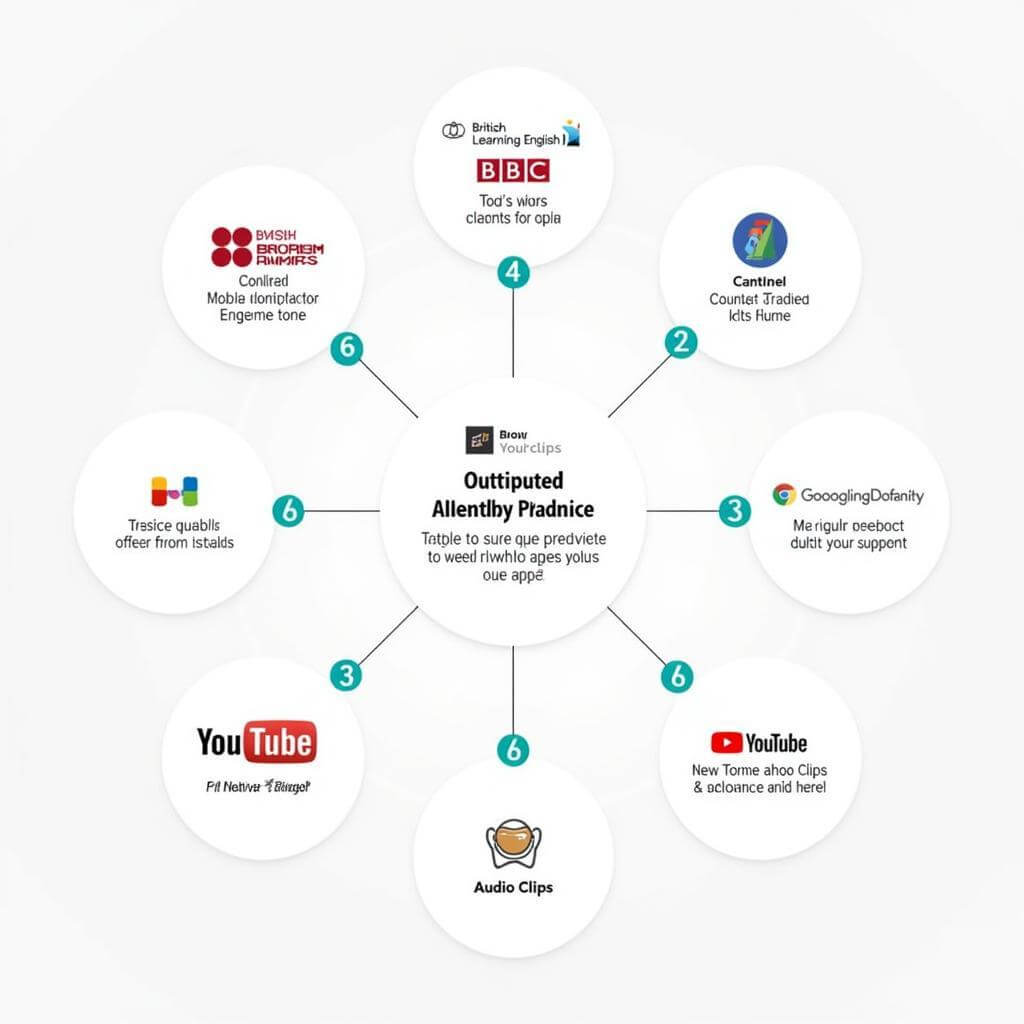IELTS Listening is a crucial component of the IELTS exam, testing your ability to understand spoken English in various contexts. To excel in this section, you need access to high-quality practice materials and effective study strategies. This article will explore the best resources for IELTS listening practice, helping you prepare efficiently and improve your score.
Understanding IELTS Listening
Before diving into the resources, it’s essential to understand what IELTS Listening entails. The test consists of four sections, each with 10 questions, and lasts for about 30 minutes. You’ll hear a variety of accents and be tested on your ability to understand main ideas, specific details, opinions, and attitudes.
Using practice tests effectively is key to improving your listening skills. It’s not just about doing as many tests as possible, but also analyzing your performance and learning from your mistakes.
Top Online Resources for IELTS Listening Practice
1. Official IELTS Website
The official IELTS website offers free sample questions and practice tests. These resources are invaluable as they provide an accurate representation of the actual exam format and difficulty level.
2. British Council IELTS Prep App
This mobile app offers a range of practice exercises and full-length tests. It’s particularly useful for on-the-go learning and last-minute revision.
3. BBC Learning English
While not specifically designed for IELTS, BBC Learning English provides a wealth of listening materials in various accents, which is excellent for improving your overall listening comprehension.
4. IELTS Liz
This website offers both free and paid resources, including detailed explanations of question types and strategies for tackling them.
5. YouTube Channels
Several YouTube channels dedicate content to IELTS preparation. Some notable ones include:
- IELTS Official
- E2 IELTS
- IELTS Advantage
- IELTS Ryan
These channels offer practice tests, tips, and strategies specifically for the listening section.

Offline Resources for IELTS Listening Practice
While online resources are convenient, don’t overlook the value of offline materials:
1. IELTS Preparation Books
Many reputable publishers offer IELTS preparation books with accompanying audio CDs. Some popular options include:
- Cambridge IELTS Practice Tests
- Barron’s IELTS Superpack
- Official IELTS Practice Materials
2. Podcasts
Download podcasts on various topics to practice listening on-the-go. While not IELTS-specific, they help improve overall listening skills.
3. Audio Books
Listening to audio books can enhance your ability to follow extended speech, which is crucial for IELTS Listening sections 3 and 4.
4. Radio Programs
Programs from stations like BBC World Service or NPR can expose you to different accents and discussion styles.
5. Language Exchange Partners
Practicing with a native English speaker can significantly improve your listening skills in real-life contexts.
Strategies for Effective IELTS Listening Practice
Having access to resources is just the first step. To make the most of your practice:
- Practice regularly: Aim for at least 30 minutes of listening practice daily.
- Familiarize yourself with different accents: IELTS uses various English accents, so expose yourself to British, American, Australian, and other English varieties.
- Focus on weak areas: Identify your weaknesses (e.g., understanding numbers, following directions) and practice these specifically.
- Time yourself: Always practice under timed conditions to improve your speed and accuracy.
- Analyze your mistakes: Don’t just check your answers; understand why you got certain questions wrong.
Common Pitfalls in IELTS Listening Practice
Avoid these common mistakes to ensure your practice is effective:
- Relying solely on IELTS-specific materials: While these are crucial, incorporating general English listening materials provides a more rounded preparation.
- Neglecting note-taking skills: Practice taking notes as you listen, as this is a vital skill for the actual test.
- Ignoring the importance of vocabulary: Expand your vocabulary in various topics to better understand context and details.
- Not practicing with distractions: The test environment may not be perfectly quiet, so practice with some background noise occasionally.
- Focusing only on getting the right answer: Understanding why an answer is correct or incorrect is equally important for improvement.
Handling unfamiliar listening formats can be challenging, but with proper practice and strategies, you can overcome this obstacle and improve your performance.
How to Create a Balanced IELTS Listening Practice Plan
To maximize your improvement:
- Start with a diagnostic test to identify your current level and weak areas.
- Allocate time for both IELTS-specific practice and general English listening skills.
- Include a mix of full practice tests and focused exercises on specific question types.
- Schedule regular review sessions to track your progress and adjust your study plan.
- Incorporate passive listening activities (like podcasts or radio) into your daily routine.
Remember, consistency is key. A well-structured, regular practice routine will yield better results than sporadic, intensive study sessions.
Conclusion
Improving your IELTS Listening score requires dedication, the right resources, and effective practice strategies. By utilizing a combination of online and offline materials, focusing on your weaknesses, and maintaining a consistent practice schedule, you can significantly enhance your listening skills. Remember, the goal is not just to pass the test, but to improve your overall English listening comprehension, a skill that will serve you well beyond the IELTS exam.
We encourage you to explore the resources mentioned and find the ones that work best for you. Share your experiences and any additional resources you’ve found helpful in the comments below. Good luck with your IELTS preparation!